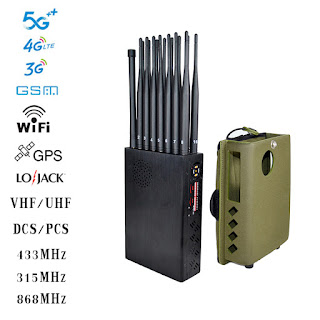Why do we care about what drone jammers are?
As a professional photographer and drone pilot, I've seen firsthand how drone technology has become mainstream (pun intended) in recent years.
But with great power comes great responsibility, and as our skies become increasingly filled with these high-tech devices, the need for regulatory and control measures becomes increasingly clear.
Enter the world of drone jammers.
In this article, we’ll explore the ins and outs of drone jammers, from basic functionality to legality. We will also discuss some practical applications of this technology.
Whether you're a drone enthusiast interested in the technology, a security professional looking to learn about drone defenses, or someone just concerned about privacy, this guide is for you and her.

Introduction to drone defense technology
Okay, guys, let’s get down to business. What exactly is a drone jammer? Why should we care?
What is a drone jammer?
Imagine you are flying your drone and taking stunning aerial shots, and suddenly your drone starts to react. It doesn't respond to your controls and seems to have a mind of its own. My friend, you may have just encountered a drone jammer.
Simply put, a drone jammer is a device designed to interrupt the control signal of a drone.
It acts like a drone party killer, ruining the party by emitting electromagnetic noise on certain radio frequencies.
These frequencies cover the same radio and GPS signals the drone uses to operate, effectively grounding it.
The development of drone technology
Now you might be asking yourself, "Why would anyone want to stop drones?" Well, like any technology, drones can be a double-edged sword. On the one hand, they've revolutionized industries from film production to agriculture, providing a bird's-eye view that was previously only possible via expensive helicopter flights.
On the other hand, they also found a whole lot of mess when it came to privacy and security issues. Imagine a drone hovering outside your window, or worse yet, a drone being used for illegal activity. Not that funny, right?
The need for drone jammers
This is where drone jammers come into play. They're essentially a way to keep drones away from places they're not supposed to go. Think of them as the gatekeepers of the sky, preventing unwanted drones from entering restricted airspace.
But it's not just a matter of privacy and security. Drone jammers also play a vital role in ensuring safety. Because the last thing you want is for a drone to collide with a passenger plane.
How drone jammers work
Picture this: you are attending a rock concert and trying to have a conversation with your friend. But the music is too loud and you can't hear each other. This is essentially how a jammer works.
Drone jammers emit electromagnetic noise at certain radio frequencies, similar to loud music at a concert. This noise drowns out the radio and jammer GPS signals the drones use to operate, effectively drowning them out.
The impact of drone jammers on drones
So what happens when a drone is hit by a jammer signal? Well, it's a bit like getting lost in a strange city without a map.
Most drones respond to jamming signal by returning to their starting point. This is their way of saying: "I'm lost and I'm going home." In some cases, a drone jammer can land a drone at a scene for forensic investigation.
How to jam drone signals
Now, before you get any ideas, I want to make one thing clear: jamming drone signals should not be attempted at home. This is a complex process that requires a deep understanding of radio frequencies and drone technology. Plus, it's illegal in a lot of places (but we'll get to that later).
That being said, it’s still interesting to understand how the process works. A drone jammer’s frequency is generally assigned at 2.4Ghz or 5.8Ghz, which are public frequencies not assigned to manned aircraft, public broadcasts, or cell phone signals.
The jammer projects its signal in the shape of a cone, and when a drone gets hit with the signal, it typically returns back to its point of origin or lands on the spot.


Comments
Post a Comment